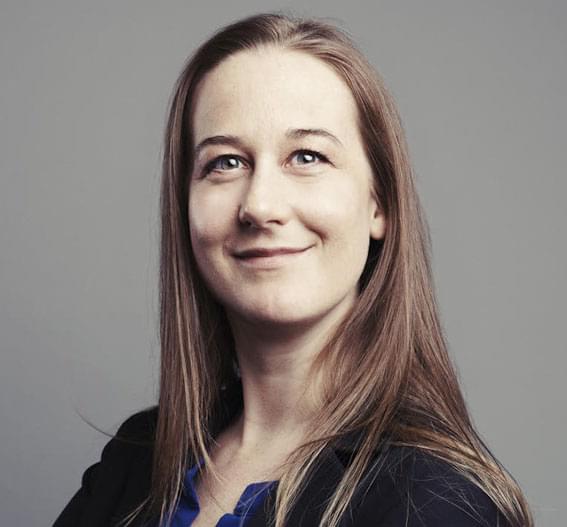Professor Laura M. Cox
Laura M. Cox, Ph.D. is Assistant Professor and Instructor of Neurology at the Ann Romney Center for Neurologic Diseases at Brigham and Women’s Hospital and Harvard Medical School.
The Ann Romney Center for Neurologic Diseases is a collaborative global pursuit to accelerate treatments, prevention, and cures for five of the world’s most complex neurologic diseases: multiple sclerosis, Alzheimer’s disease, ALS (Lou Gehrig’s disease), Parkinson’s disease, and brain tumors.
Laurie is a member of the Weiner Lab at Brigham and Women’s Hospital, Harvard Medical School. She joined the Lab of Howard Weiner in 2019 as Instructor and is now investigating the influence of intestinal microbiota on immunity and neurodegenerative diseases, including multiple sclerosis and Alzheimer’s disease.
She was awarded the Alzheimer’s Women’s Movement Award as well as a fellowship from the Women’s Brain Initiative at Brigham & Women’s Hospital in 2018, for her studies of sex-specific interactions between the microbiota and pathology in an animal model of Alzheimer’s disease.
She began her career in anaerobic bacteriology and was trained and board certified as a medical technologist, working for two years as a clinical microbiologist at Anaerobe Systems between 1999 and 2004.
In 2005, she earned her Bachelor’s Degree of Science in Microbiology at California Polytechnic State University-San Luis Obispo. She then earned her Clinical Laboratory Science Certification to become Medical Staff Service Technician in 2006 at the School of Clinical Laboratory Sciences, Cottage Hospital, Santa Barbara.
Laurie earned her Ph.D. in Microbiology at New York University in Dr. Martin Blaser’s lab in 2013, where her work demonstrated that early-life antibiotic treatment results in lasting changes and consequences in metabolism.
Read Antibiotics in early life alter the murine colonic microbiome and adiposity and Altering the Intestinal Microbiota during a Critical Developmental Window Has Lasting Metabolic Consequences.
To gain experience with models of neurologic disease, she then pursued postdoctoral training at NYU Langone Medical Center in the lab of Dr. Howard Weiner in 2013.
In 2014, Laurie became Director of Research and Development at Anaerobe Systems, a company she previously worked in Quality Control.
In 2015, she became Research Fellow at Brigham and Women’s Hospital where she continued as Instructor in Neurology in 2019 and Assistant Professor in 2021.
In 2021, Laurie was awarded the Infectious Diseases Society of America (IDSA) Foundation’s Microbial Pathogenesis in Alzheimer’s Disease Grant for her research, “Investigating Strain-Specific Pathogenicity Factors in Bacteroides That Influence Alzheimer’s Disease.”
She is investigating the microbiome’s role in neurologic diseases, including Alzheimer’s disease, multiple sclerosis, amyotrophic lateral sclerosis, and Parkinson’s disease. She recently discovered that Bacteroides fragilis increases in aging and can contribute to amyloid plaques in experimental models of Alzheimer’s disease. She is now trying to understand how Bacteroides fragilis and other bacteria can contribute to Alzheimer’s disease in the hopes of intervening to prevent and treat AD.
Laurie is involved in research through the Cure Alzheimer’s Fund which targets breakthrough research. Between 2019 and 2021, she worked on Targeting the microbiome and Microglia in Alzheimer’s Disease, and until 2023, she is working on Targeting the Microbiome and Innate Immunity in Alzheimer’s Disease.
Read Alterations of the human gut microbiome in multiple sclerosis and Intergenerational transfer of antibiotic-perturbed microbiota enhances colitis in susceptible mice.
Visit her LinkedIn profile and Google Scholar page. Follow her on ResearchGate and her work profile.





